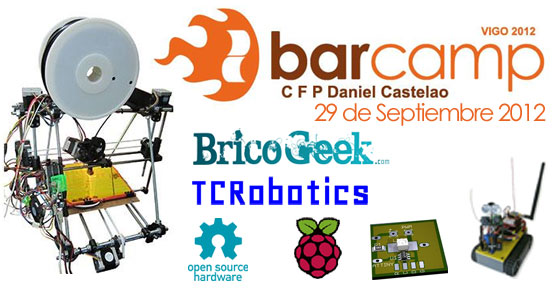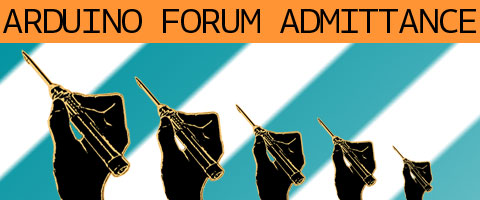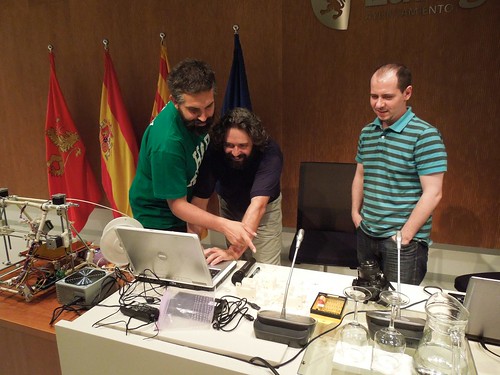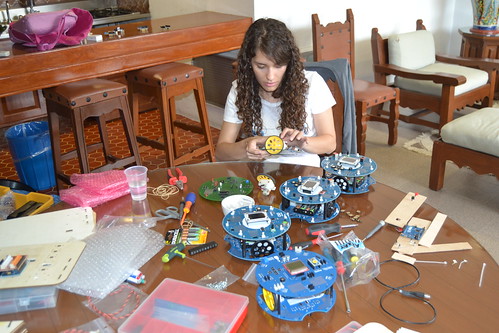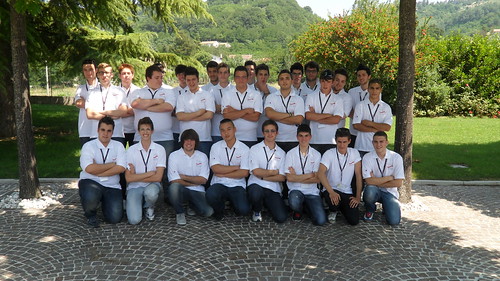
Loccioni Group, is an italian company that sponsors every year a project internship entitled “Classe Virtuale”, dedicated to young students coming from local technical schools.
This year, “Classe Virtuale 2012″ has been composed by 27 students with different backgrounds, selected among 120 candidates. After a stating training period, during the three-weeks internship the team worked on a very nice Arduino-based project: Flow Meter.
Here you may find a brief interview we had with Daniele Caschera, one of the components of “Classe Virtuale 2012″, about Flow Meter and on how Arduino helped in its design.
Alessandro: Daniele, could you describe us what “Classe Virtuale” is, in practice?
Daniele: “Classe Virtuale”, the partnership between Loccioni Group and local technical education institutions, has began in 2001 when Mr. Loccioni decided to invest on young students, by offering training periods and stages inside his company. In 2010 the project, which occours on annual basis, expanded to three more scools and in 2012 it has reached the 12-th edition.
The goal of this collaboration is to train and educate young technicians, by serving as a bridge between school and a real employment.
A: Could you briefly describe us the “Flow Meter” project?
D: “Flow Meter” is a real flow measurer: it has been designed to measure the flow of all the students who have attended to the previous editions of “Classe Virtuale”, starting from the first edition.
First, we have designed a PHP web application usable to collect the information reagarding all the participants to the previous editions and, then, we used some Arduino boards to represent this amount of data into a visible form, by means of several LEDs.
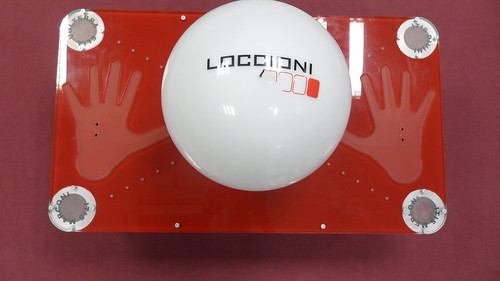
More in details, Flow Meter can be turned on by laying the hands on it, which can be detected by means of some proximity sensors located on the surface.
Then, it begins to show the collected data, starting from the first edition of “Classe Virtuale”, by turning on a set of LEDs, arranged in three rows inside a semi-transparent, white sphere. The first row, composed by red LEDs, represents how many students are currently employed at Loccioni, while the second one, composed by blue LEDs, shows how many people work or study in Italy; the last row (again composed by red LEDs) presents how many people work or study abroad.
By leaving the hands on Flow Meter, it is possible to scroll through all the editions of “Classe Virtuale”.
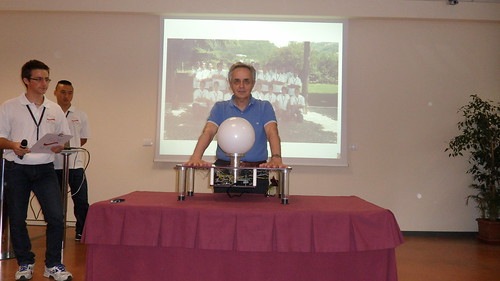
Finally, four small pillars, placed at the corners of the structure, represent the four schools involved in the 2012 edition of the project: a set of LEDs is used to show how many students come from each institution per year.
A: How Arduino contributed to this Flow Meter?
D: Many of us did not know Arduino at the beginning of “Classe Virtuale 2012″. The board has been introduced us during the initial training period by some electronic engineers at Loccioni. Then, we started to find out more information about it and how to adopt it in our project on the web, on books and so on.
Arduino has been fundamental in our project, simply because it composes the “brain” of Flow Meter, by means of a set 4 Arduino Uno and an Arduino Mega, and because it is used to activate the LEDs composing its “visual” interface.
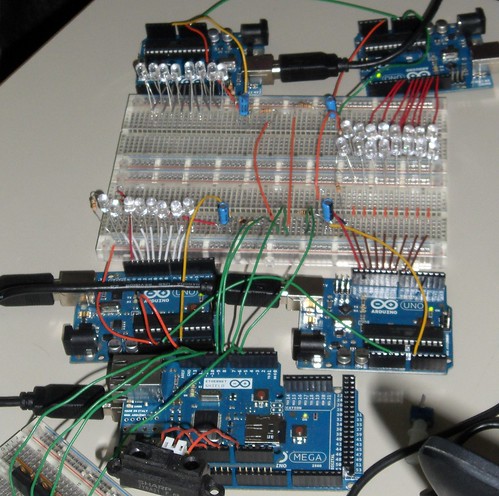
A: How do you evaluate this internship experience?
D: This experience has been very positive for us, mainly because it gave us the chance to work on a real project together with very skilled people and technicians. Moreover, since the team has been divided into small working groups (e.g., those working on mechanical parts and those working on electronics and programming), we have gained experience on topics that you typically won’t study at school. Everyone has learned a lot during “Classe Virtuale”!
This very nice project, which has been presented on July 19 (the streaming of the event will be available here), represents another example of how open-source solutions can be used as effective enabling technologies, even for educational purposes.
Great job “Classe Virtuale” and thanks for this interview!
 Arduino was conceived as an open source microcontroller for artists, designers, and others who aren't necessarily techie/programmer types. Of course, all sorts of makers have flocked to this technology because of its versatility. But in spite of its relative ease of use, there's still a barrier to entry for new users. Like kids. For that reason, BirdBrain Technologies' Hummingbird looks promising. They call it "pre-Arduino."
Arduino was conceived as an open source microcontroller for artists, designers, and others who aren't necessarily techie/programmer types. Of course, all sorts of makers have flocked to this technology because of its versatility. But in spite of its relative ease of use, there's still a barrier to entry for new users. Like kids. For that reason, BirdBrain Technologies' Hummingbird looks promising. They call it "pre-Arduino."






